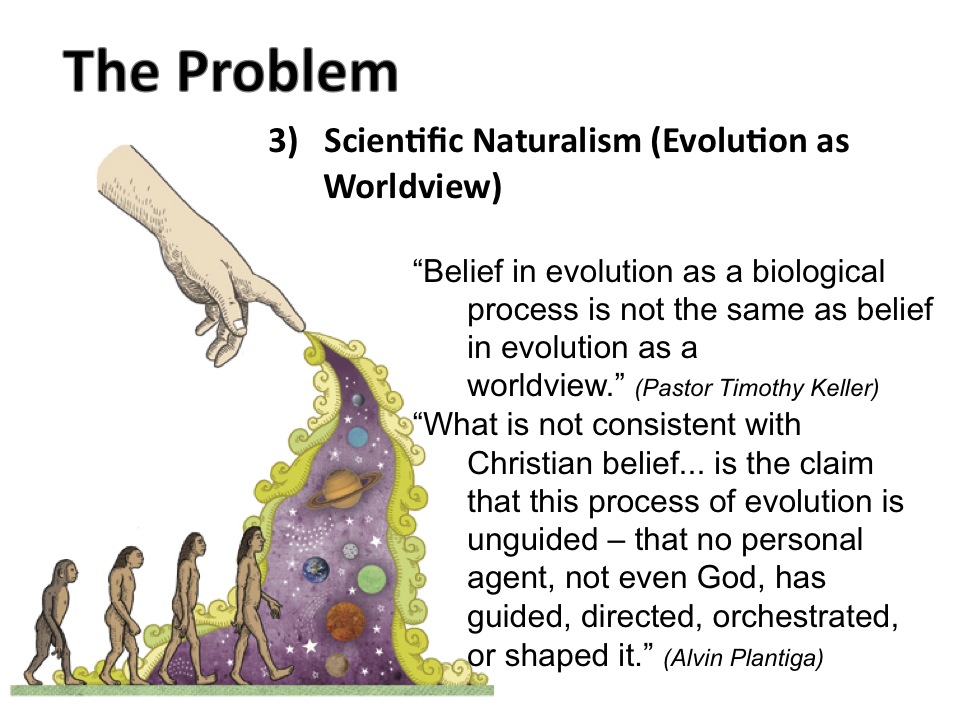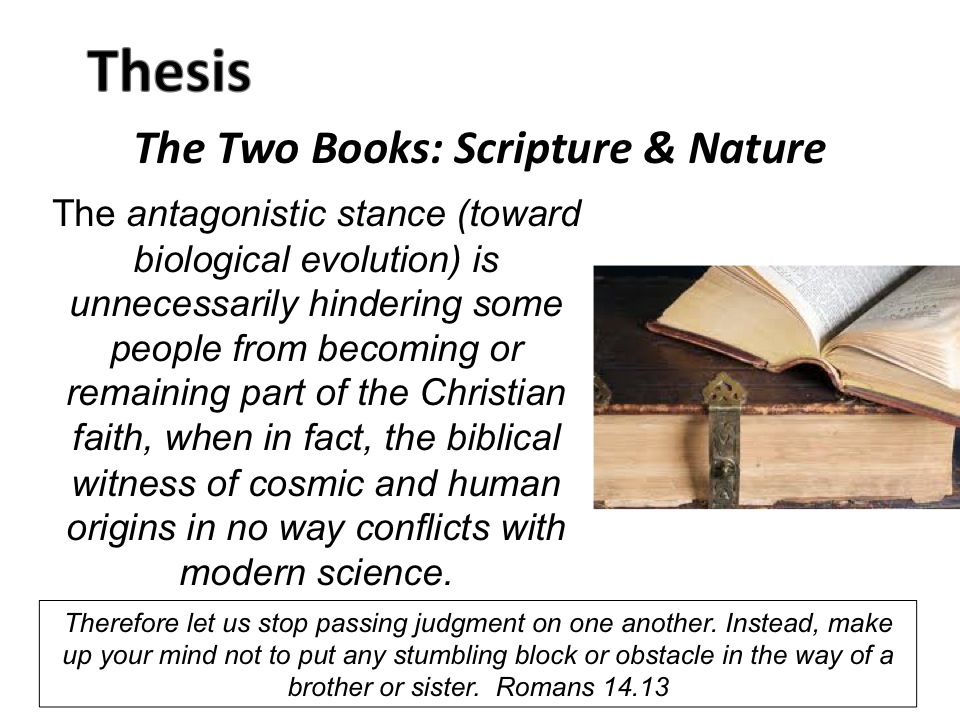The following series is based on my senior paper for Seminary. You may remember a video where I invited people to contribute their stories to help make my case. For the next couple weeks, I’ve decided to share my findings with you all. There will be a “thesis/problem” section, a “biblical theology” section, and an “application” section. I hope you will read along and share this with others! You can read the rest of the series here.
—————————————————————————————
Evolving Evangelicalism: Inviting Church Leaders to Refine their Approach to Scripture and Origins (part 3)
The Problem of Scientific Naturalism
Any evolutionary theories incorporating scientific naturalism (or evolution as worldview) absolutely conflict with Christian belief. Pastor Timothy Keller insists: “Belief in evolution as a biological process is not the same as belief in evolution as a worldview.”[1] Scientific naturalism, distinct from biological evolution, “holds that all that exists is physical and can be reduced to its elemental material composition.”[2] Therefore, god is myth; only matter is eternal.
In this view, various forms of matter, called essences, existed eternally prior to the point in evolutionary history that led to the observable universe.[3] As a result, naturalists believe that appealing to God (or any spiritual entity) distracts from human progress because problems in the world can only be solved through science.[4] Alvin Plantinga makes the distinction clear: “What is not consistent with Christian belief… is the claim that this process of evolution is unguided – that no personal agent, not even God, has guided, directed, orchestrated, or shaped it.”[5] Christians often fail to leave room for a God-directed evolution, and naturalists often assume atheism can be deduced because of science. Both views wrongly assert a false polarization.
THESIS
St. Augustine[6] believed that humans ought to approach the quest for knowledge by holding together the two sacred forms of revelation given to humanity by God: the book of Scripture and the book of nature (or the natural world). He believed that these two books are God’s perfect and complementary modes of truth communication. Therefore, the interpretation of texts should not be held so tightly as to fail to leave room for the book of nature to reveal truth about reality.[7]
With this concern in view, Augustine wrote: “Reckless and incompetent expounders of Holy Scripture bring untold trouble and sorrow on their wiser brethren when they are caught in one of their mischievous false opinions and are taken to task by those who are not bound by the authority of our sacred books.”[8] This applies today as well-meaning evangelical leaders teach that the biblical origins accounts conflict with evolution. This antagonistic stance is unnecessarily hindering some people from becoming or remaining part of the Christian faith, when in fact, the biblical witness of cosmic and human origins in no way conflicts with modern science.
DO YOU AGREE WITH MY THESIS? IF SO, WHY? IF NOT, ARE YOU WILLING TO HEAR A NEW PERSPECTIVE?
[1]. Timothy Keller, “Creation, Evolution, and Christian Laypeople,” BioLogos Foundation, http://biologos.org/resources/timothy-keller/ (accessed February 11, 2012), 5.
[2]. Steve Wilkens and Mark L. San, Hidden Worldviews: Eight Cultural Stories That Shape Our Lives (Downers Grove, Ill.: IVP Academic, 2009), 100.
[3]. Ibid., 101.
[4]. Ibid., 104.
[5]. Alvin Plantinga, Where the Conflict Really Lies: Science, Religion, and Naturalism (New York: Oxford University Press, 2011), 12.
[6]. The source of the following: Lawrence M. Principe, “Science and Religion,” The Teaching Company: Great Courses, http://www.teach12.com/tgc/courses/course_detail.aspx?cid=4691 (accessed February 11, 2012).
[7]. Ibid., See: Course Book, 8.
[8]. As quoted by: I. Howard J. Van Till, “God and Evolution: An Exchange,” First Things: A Monthly Journal of Religion & Public Life, no. 34 (June 1993). Humanities International Index, EBSCOhost (accessed January 4, 2011), 32-38.













